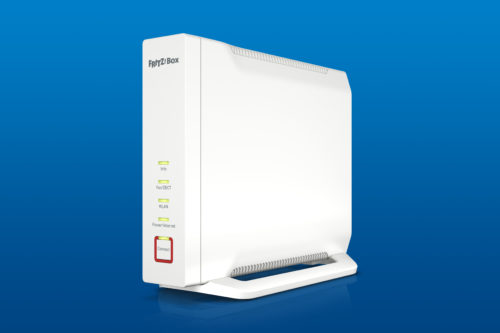The German router manufacturer AVM and the Chinese technology group Huawei have been in a patent dispute since 2022. Huawei accuses AVM of infringing two of its WLAN patents. AVM denies the allegations.
What is the subject of the dispute?
Advertisement
The two patents are standard essential patents (SEPs). SEPs are patents required to implement a standard. In the case of Wi-Fi, the two patents are required for Wi-Fi 6 (IEEE 802.11ax) to work.
What did the Munich Regional Court decide?
On November 10, 2023, the Munich I Regional Court ruled in favor of Huawei in the first instance in a partial dispute. The court found that AVM infringed one of the two patents.
What does the verdict mean for AVM?
Advertisement
The judgment of the Munich I Regional Court is not yet legally binding. AVM has filed an appeal. However, if the verdict is confirmed in the final instance, AVM would no longer be able to sell its FRITZ!Boxes that support Wi-Fi 6 in Germany.
What consequences would a sales ban have?
A ban on the sale of FRITZ!Boxes would have a significant impact on the German market for WLAN routers. AVM is the market leader in Germany and its FRITZ!Boxes are very popular. A sales ban would open the market to other router manufacturers and lead to higher prices.
What's next?
The patent dispute between Huawei and AVM has not yet been decided. The appeal proceedings before the Munich Higher Regional Court are expected to take place in 2024. Until then, it is uncertain whether AVM will be allowed to continue selling its FRITZ!Boxes in Germany.
Deskmodder has an official statement:
“Ladies and Gentlemen,
Huawei's patent lawsuit against AVM is currently being reported in the media. We would be happy to describe the situation and provide you with details.
Since 2022, Huawei has been in legal disputes with us and other companies in Germany over the alleged use of Huawei patents, which, in Huawei's opinion, are inevitably used by every device that implements the Wi-Fi 6 standard. The disputes against AVM are about standard essential patents (SEP) for WLAN. A lawsuit brought by Huawei against AVM was dismissed, and AVM has appealed against the first instance judgment in a second lawsuit. AVM does not see that this SEP from Huawei will even be used in common WLAN products. This means that AVM does not assume that this patent is being infringed.
The first instance judgment of the Munich Regional Court is not legally binding. We consider the ruling of the Munich Regional Court I of November 10, 2023 to be technically and legally incorrect and have therefore appealed to the Munich Higher Regional Court. We are of the opinion that the patent is not legally valid. We are not the only ones who have filed an action for nullity with the Federal Patent Court. For this reason, the Düsseldorf Regional Court has suspended Huawei's infringement proceedings based on the same patent against another company (unlike the Munich Regional Court I). The Federal Patent Court says in a qualified note that the patent in its current form is likely to be invalid.
A SEP is not an “ordinary” patent, but a patent without which a standard cannot be used. Certain rules therefore apply to SEP. For example, the patent holder is obliged to grant its licenses under fair, reasonable and non-discriminatory (FRAND) conditions. Otherwise, every holder of a SEP could theoretically have the use of a standard such as WLAN banned worldwide. Therefore, despite the lawsuit with Huawei, we – like other companies – continue to negotiate a license agreement on FRAND terms. We are currently in mediation proceedings with Huawei.
As soon as we have new information, we will inform you.We are available to answer any questions you may have at any time. “
